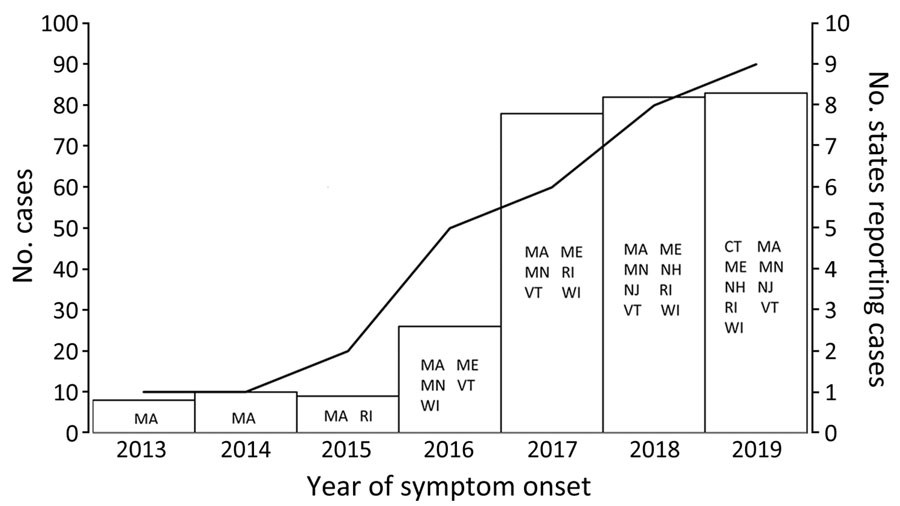Volume 29, Number 9—September 2023
CME ACTIVITY - Synopsis
Characteristics of Hard Tick Relapsing Fever Caused by Borrelia miyamotoi, United States, 2013–2019
Figure 2

Figure 2. Number of annual cases of hard tick relapsing fever (vertical bars) and number of states reporting cases of hard tick relapsing fever caused by Borrelia miyamotoi (line), United States, 2013–2019. The left y-axis corresponds to the vertical bars, and the right y-axis corresponds to the line; scales for the y-axes differ substantially to underscore patterns but do not permit direct comparisons. States reporting cases in that year are shown. CT, Connecticut; MA, Massachusetts; ME, Maine; MN, Minnesota; NH, New Hampshire; NJ, New Jersey; RI, Rhode Island; VT, Vermont; WI, Wisconsin.
Page created: July 06, 2023
Page updated: August 18, 2023
Page reviewed: August 18, 2023
The conclusions, findings, and opinions expressed by authors contributing to this journal do not necessarily reflect the official position of the U.S. Department of Health and Human Services, the Public Health Service, the Centers for Disease Control and Prevention, or the authors' affiliated institutions. Use of trade names is for identification only and does not imply endorsement by any of the groups named above.